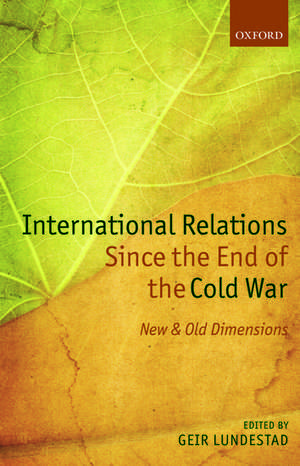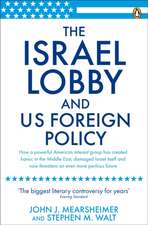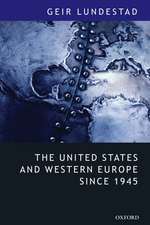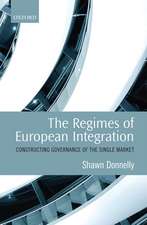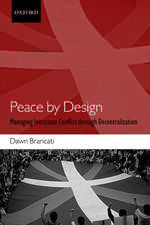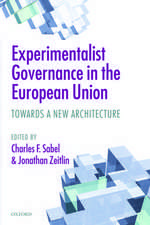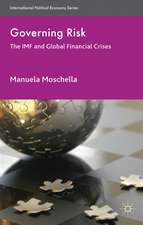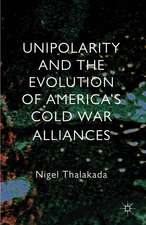International Relations Since the End of the Cold War: New and Old Dimensions
Editat de Geir Lundestaden Limba Engleză Hardback – 6 dec 2012
Preț: 790.83 lei
Preț vechi: 1135.56 lei
-30% Nou
Puncte Express: 1186
Preț estimativ în valută:
151.34€ • 157.11$ • 126.20£
151.34€ • 157.11$ • 126.20£
Carte tipărită la comandă
Livrare economică 12-18 martie
Preluare comenzi: 021 569.72.76
Specificații
ISBN-13: 9780199666430
ISBN-10: 0199666431
Pagini: 334
Dimensiuni: 162 x 240 x 25 mm
Greutate: 0.66 kg
Editura: OUP OXFORD
Colecția OUP Oxford
Locul publicării:Oxford, United Kingdom
ISBN-10: 0199666431
Pagini: 334
Dimensiuni: 162 x 240 x 25 mm
Greutate: 0.66 kg
Editura: OUP OXFORD
Colecția OUP Oxford
Locul publicării:Oxford, United Kingdom
Recenzii
This book will be valuable particularly for students of international relations and history, since it brings together examples of sophisticated thinking on issues of concern to both academics and policymakers during the Cold War and its aftermath.
This is a genuinely useful collection generating dialogue, debate, and numerous essay questions for those teaching international relations, foreign policy, and comparative politics at all levels.
Lundestad has made an important contribution, giving us the tools to understand international relations in their post-Cold War context and to see the prehistory of the current crises.
This is a genuinely useful collection generating dialogue, debate, and numerous essay questions for those teaching international relations, foreign policy, and comparative politics at all levels.
Lundestad has made an important contribution, giving us the tools to understand international relations in their post-Cold War context and to see the prehistory of the current crises.
Notă biografică
Geir Lundestad has been the Director of the Norwegian Nobel Institute since 1990 and a Professor of International History at the University of Oslo since 1991. He has been a visiting scholar at Harvard University and the Woodrow Wilson Center in Washington, DC. He has written several highly acclaimed books on international history in general and on US foreign policy in particular.
